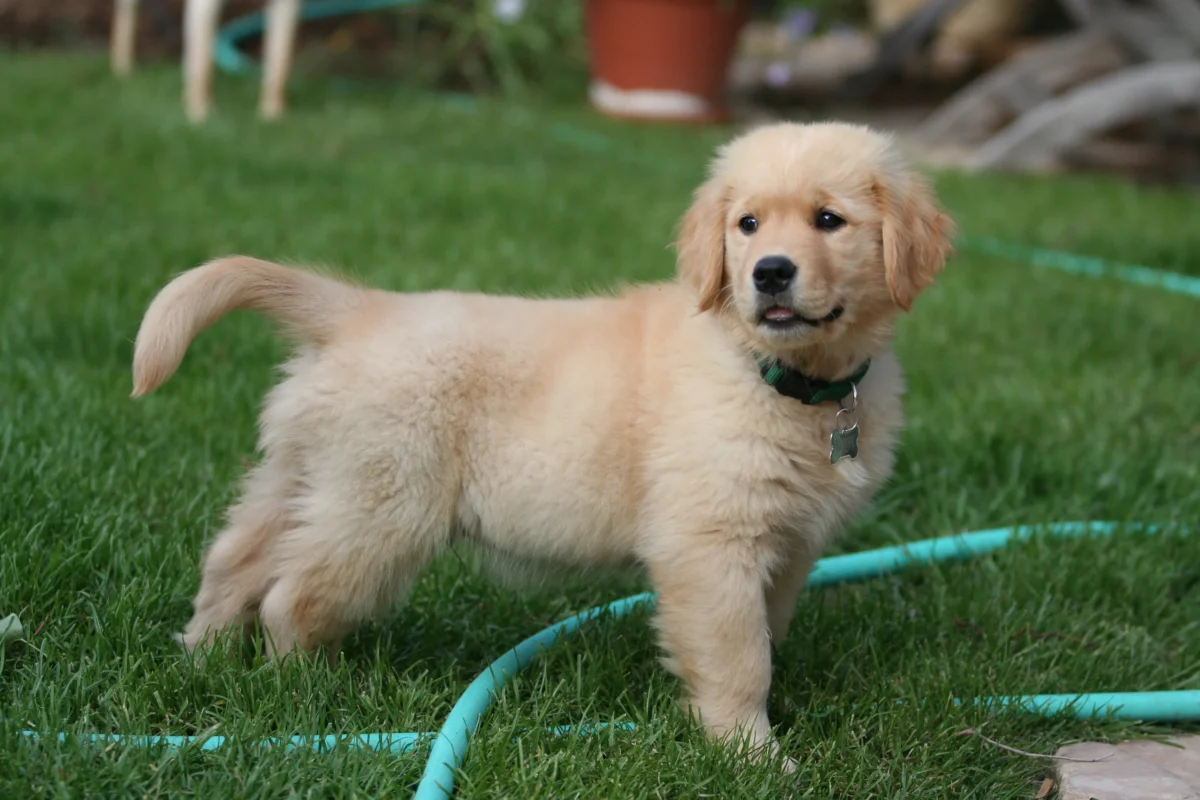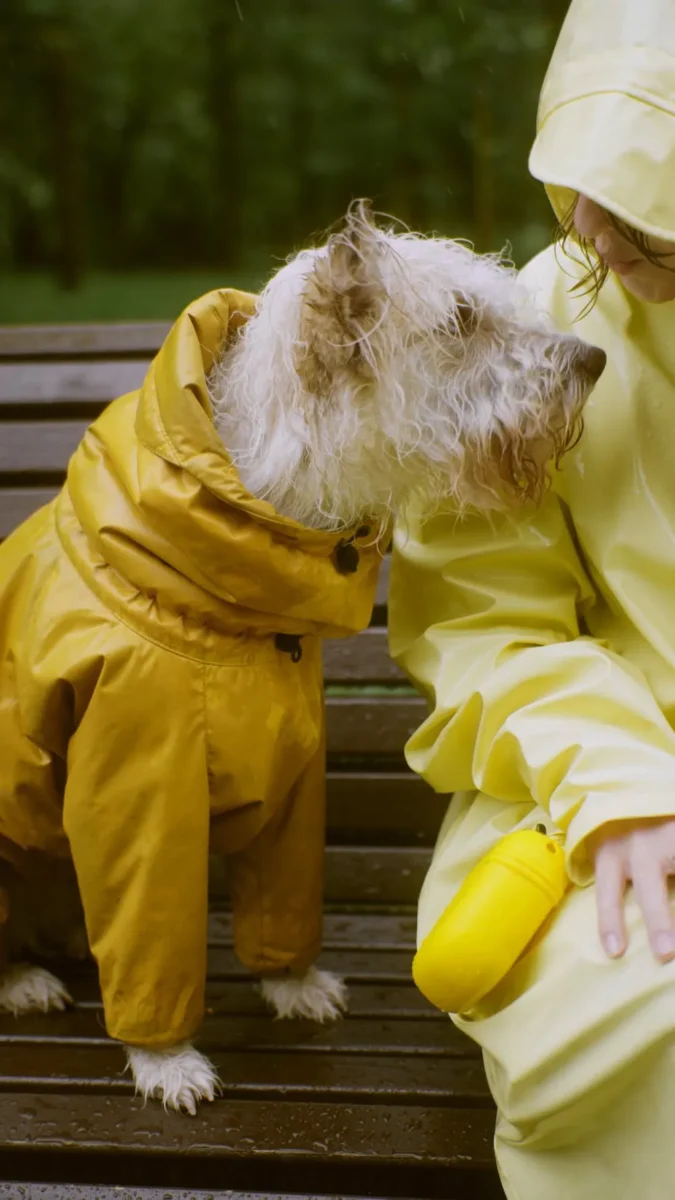It may come as a surprise to many, but domestic dogs are the most common predators of chickens in both suburban and rural regions. Most of our canine buddies are out there on the verge of killing chickens roaming about in the open. Although they don’t mean to, because they like to chase them, it can be fatal for your chickens as hens frequently break their necks trying to flee or die of heart attacks if there is no safe place to run or hide.
Even if your chickens are not injured or killed as a result of a dog attack, the stress might cause them to stop laying for days or even weeks. You can consider them as lucky if they’re spared by your pet dog because even small dog breeds can frighten, injure, or even kill chickens.
Do Dogs Kill Chickens?
A domestic dog that goes into the coop or runs around with the chickens has the potential to kill or harm them even if it is unintentional. Some playful canines like to bite or squeeze chickens, causing them to either suffocate or break their necks, and leaving you baffled at the sight.
Most dogs will chase them until they die; others will quiver a chicken to death. And then there are some dogs that will simply kill with one quick bite and live on like nothing ever happened. Moreover, dogs don’t usually eat chickens unless they’re starved or not domesticated. A well-fed pet dog will rarely eat a chicken. Instead, they chase and kill them for the sheer pleasure of it (sounds pretty gruesome, no?). When it comes to chickens, even the most amazing, loving, calm, and gentle dogs—dogs who would never injure a human—have killing and chasing instincts. And you can’t blame them for it because that’s what they do.
So, if a dog ends up killing your chickens, you should hold yourself responsible instead of blaming the dog. To avoid such an incident, it’s always best to take precautions beforehand and ensure that your chickens are kept in a safe place, protected from dogs (whether it’s your pet dog, a neighbor’s dog, or a stray).
You’d be surprised to know that dogs are capable of hopping over fences, dig under barriers, and tear through wires. Remember that it is not your dog’s fault if he kills your hens; he is simply acting on his natural impulses. It is your obligation to keep your own dog on a leash or properly gated so that he does not chase those poor chickens, get into mischief, get harmed, destroy property, or kill other animals.
Can Dogs Kill Chickens?
Not every dog is a killer! Warden dogs, such as the Anatolian Shepherd, are trained and bred to live outside with your animals and guard them from predators. Others, as our helpful lab, let the chickens rule the roost. If you have a dog and are thinking of obtaining chickens, it’s crucial to first assess how docile and trainable your pet is. If you think they’ll attack your flock, build a safe coop with an apron or buried fencing made of strong gauge hardware cloth rather than chicken wire. You’ll need to keep an eye on the chickens while your dog is away.
If your dog is obedient or submissive, on the other hand, you may not need to be concerned. The basic line is that no one can guarantee whether or not your dog will be a threat to your hens. It is your responsibility to get to know your dog and get your guard up to protect your flock.
Ways to Prevent a Dog from Killing Chickens
Many canines have acquired a high predation drive from their forefathers. Despite the fact that many dog owners socialize with their dogs and train them to engage with people, other dogs, and cats, only a few of us consider socializing them with chickens. But what happens if you decide to start keeping chickens and your dog becomes obsessed with catching them?
It may all seem cute, fun, and games until everything spirals out of control and your dog pounds on your chickens. Once a dog develops a habit of chasing chickens, it becomes very difficult to stop, and you may even develop feelings of animosity toward the poor animal. But don’t worry; we’re here to help! Here is a list of the most effective strategies for teaching your dog to quit attacking chickens. If the first approach you try does not work, try another until you find one that does.
Command and Pull on a Leash
This strategy involves keeping your dog on a leash and gradually moving it closer to the hens until it begins to act aggressively, at which point you will reprimand it.
Close Encounters
You can use this strategy by bringing your dog close to the hens while on a leash and waiting for them to calm down before giving them lots of praise. This will allow you to give your dog commands as it gets too close to the chickens until they learn to listen and obey, even when they’re quite close.
Drop on Request
This strategy necessitates teaching your dog to drop treats or toys so that they are accustomed to giving up the treat (in this case, chickens) in exchange for obeying your command.
Training at a Distance
In this method, you provide directions to your dog as you approach the chickens, gradually getting closer each day.

Positive Recommendation
« The Ultimate Guide to Potty Training Your Golden Retriever Puppy
Do Golden Retrievers Bite? »
You’ll give your dog lots of positive praise while they’re calm around the chickens, but you’ll reprimand them or stop praising them if they display hostility. This will teach your dog that being calm around the hens is good.
Final Thoughts
You’ve most likely taken efforts to protect your animals and have a decent understanding of potential hazards. However, some individuals do not anticipate their own dog attacking their livestock, including chickens. Most dogs prefer to run after and play with chickens rather than kill them. Chickens, on the other hand, may break their necks or have a heart attack if they try to flee. Even if the chicken is unhurt, the stress may be too traumatizing for the chickens. Therefore, it is best to take preventive measures before it is too late.







